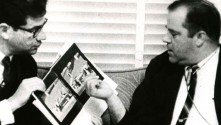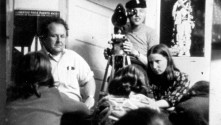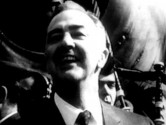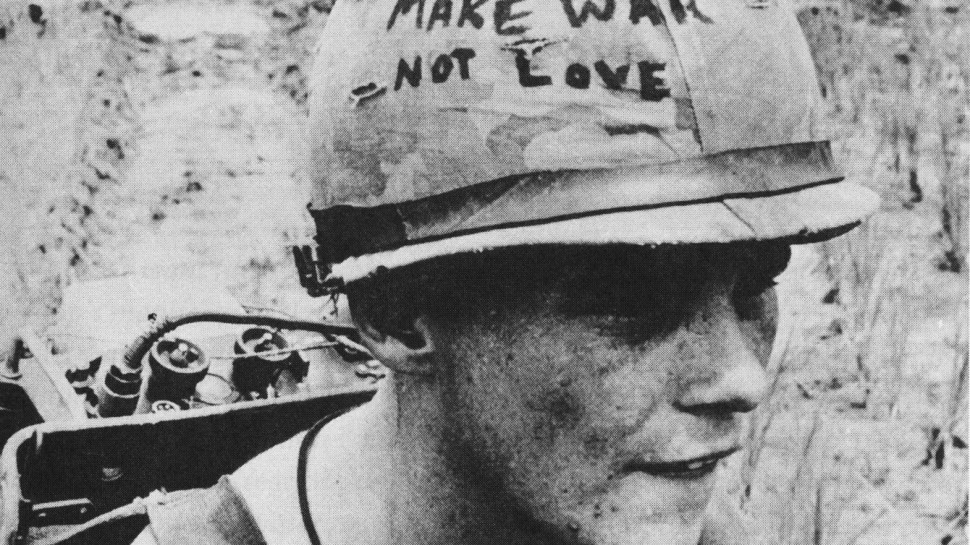
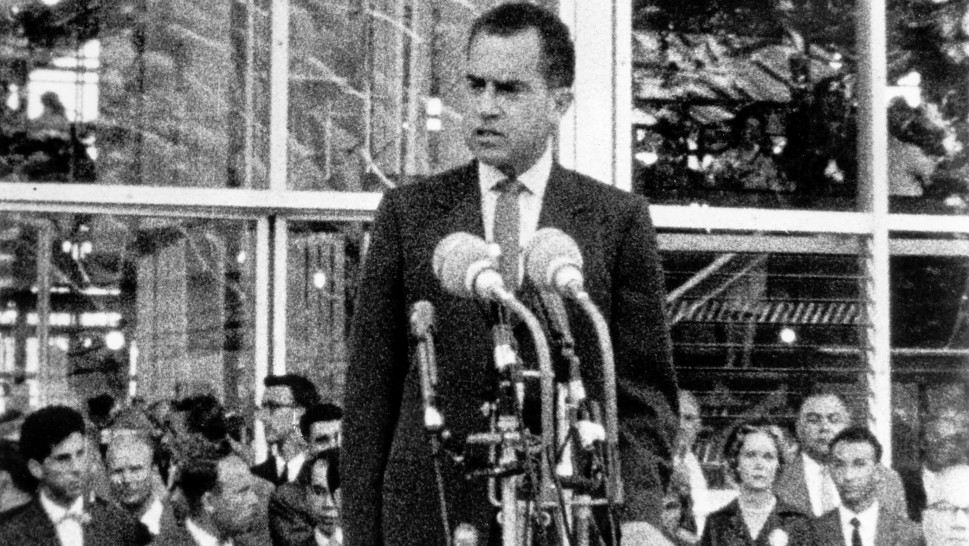
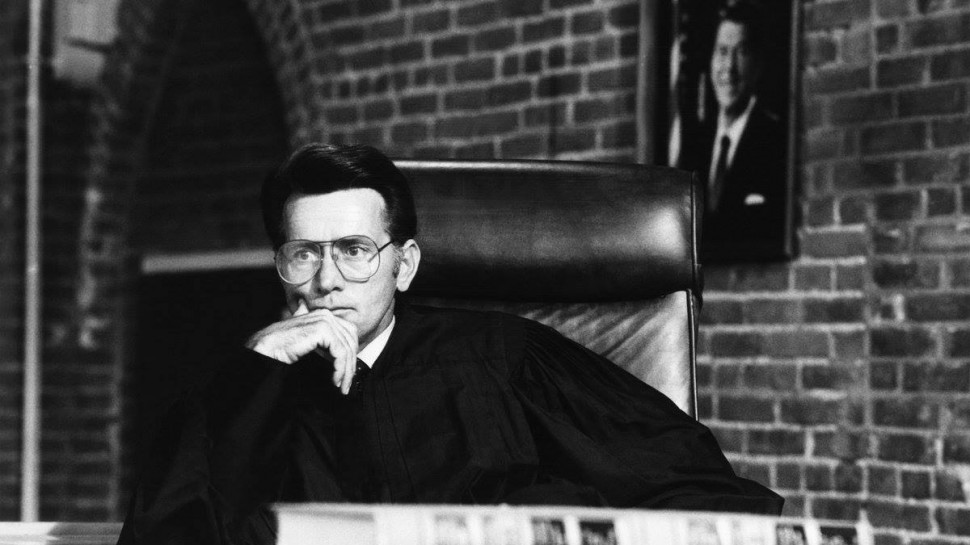
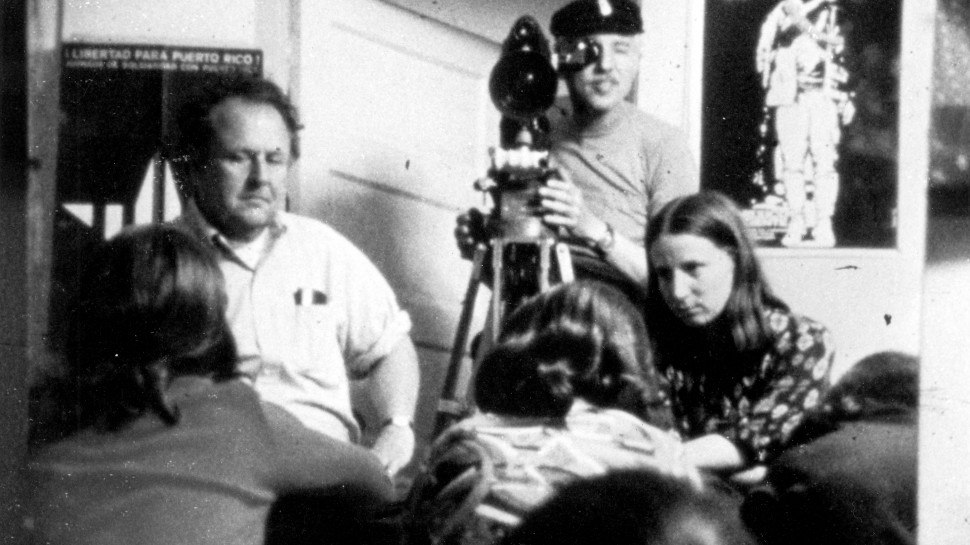
Cold War Chronicles. The Films of Emile de Antonio
As Fahrenheit 9/11 racks up another week of multimillion-dollar grosses, pundits are buzzing that no major documentary has been so scathing toward a sitting president during an election. Apparently, they've never seen Emile de Antonio's Millhouse: A White Comedy.
Forty years ago, a no-budget film about the Army-McCarthy hearings debuted at the Beekman Theater in Manhattan. The film, Point of Order, received an enthusiastic response from the press and quickly became a favorite of audiences on the art-house circuit. Over the next twenty-five years, the film’s director would emerge as one of the strongest and most principled voices of the American counterculture, incurring the wrath of everyone from Richard Nixon to J. Edgar Hoover. In his book on Emile de Antonio, scholar Randolph Lewis describes the filmmaker as “the foremost cinematic chronicler of cold war America and one of the most provocative film essayists of the century.” Although his early films relied heavily on compilation techniques using newsreel footage as their primary source, his later films became much more personal, revealing as much about the filmmaker as they did about his politically charged subjects. Whether profiling the presidential candidacy of Eugene McCarthy or gaining access to the underground world of The Weatherpeople, de Antonio staked out a largely unpopular (and dangerous) position as a radical Marxist determined to challenge the conventions of bourgeois society.

